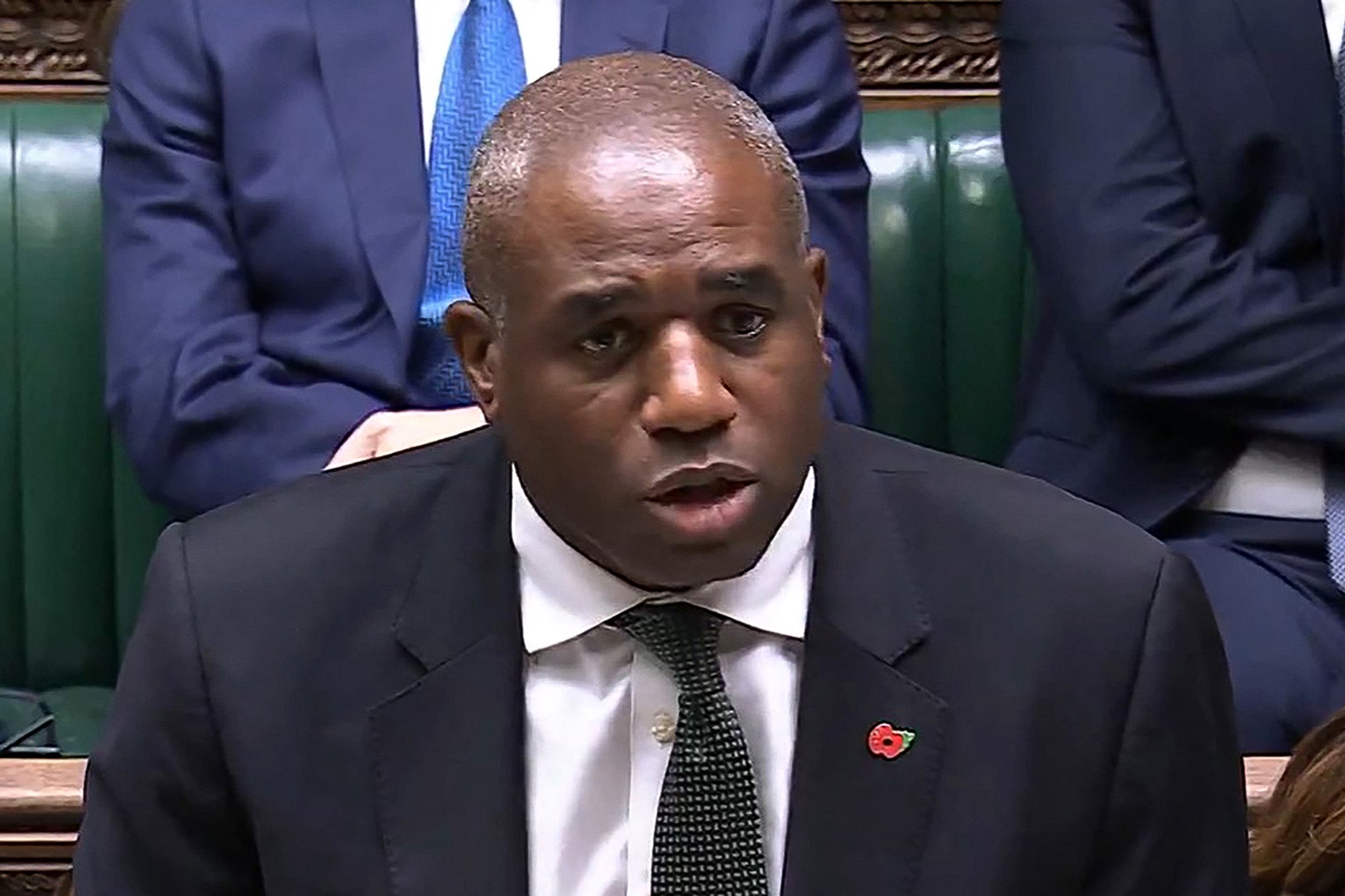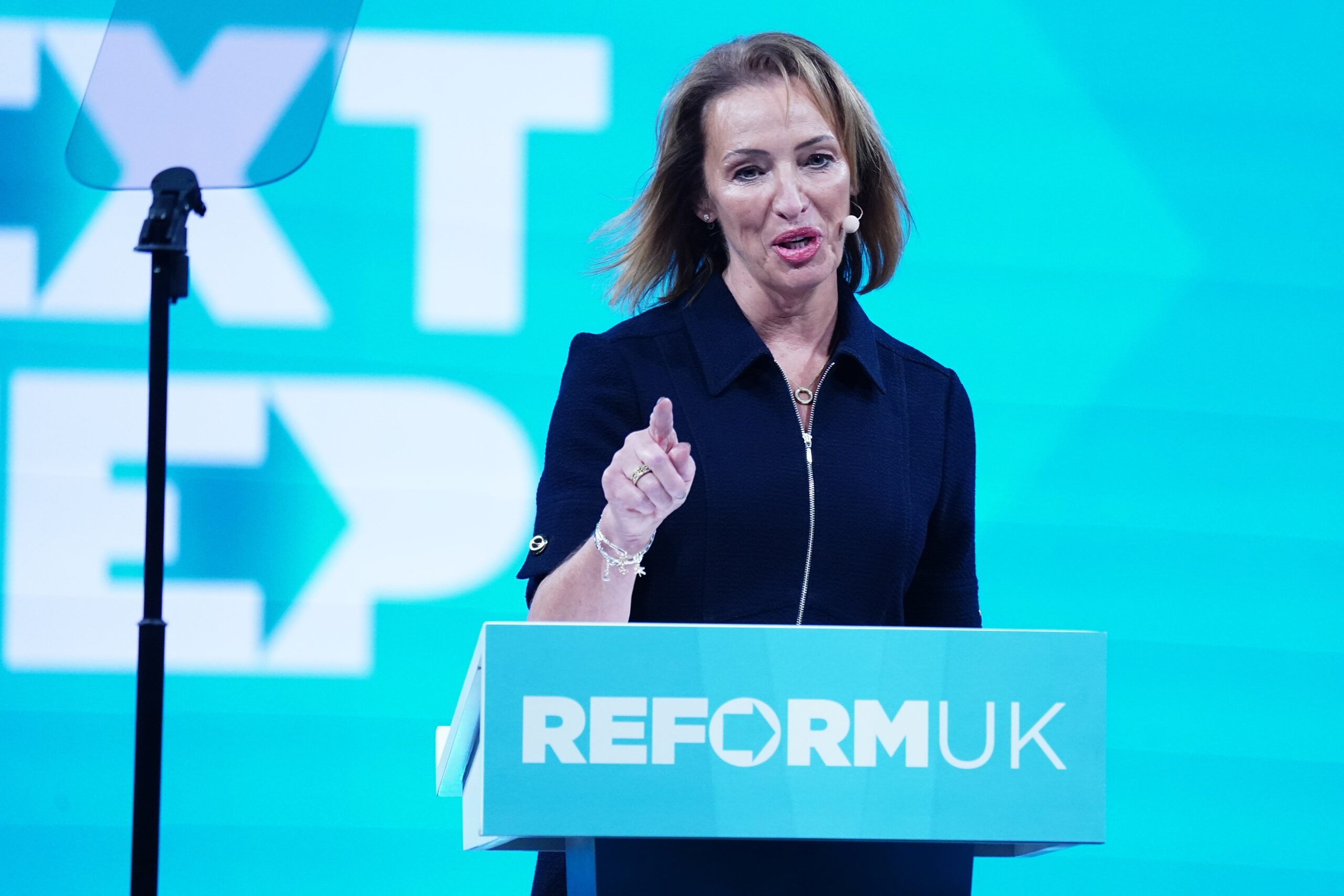David Lammy has insisted that despite experiencing horrendous prejudice while growing up, he does not believe Britain is not a racist country and hit out at those who “would have us believe that we are more divided than we really are”.
Writing exclusively for The Independent to mark Black History Month, the justice secretary described how he was spat at as a young boy for being Black, and said he was “terrified” of the skinheads who “patrolled our neighbourhoods, spreading their hate”.
But he insisted his experiences of efforts to combat division have shown him Britain is not a racist country and is instead a nation of people “determined to play their part in putting it right”.
Arguing that most people want to live in a “tolerant society”, Mr Lammy lashed out at Reform, warning the party’s worldview is counter to Britain’s true spirit.
He highlighted comments made last weekend by Reform’s Runcorn MP Sarah Pochin, who told Talk TV that seeing Black and Asian people in adverts made her angry, warning that such remarks were becoming “normalised” and marked a return to “flagrant racism”.
While Ms Pochin has since apologised, Labour ministers have said she was only sorry “for saying the quiet bit out loud”.

Mr Lammy said: “Most people want to live in a tolerant society and are disgusted by the racist views of the Reform MP Sarah Pochin who said there were too many Black and Asian faces in adverts. They feel the peril of such comments becoming normalised and stand with us against the return of such flagrant racism.”
He warned: “In Britain today, we can all feel a sense of division tugging away at the seams of our society. Some people would have us believe that we are more divided than we really are. They pit neighbour against neighbour, feeding fear, and fuelling outrage. But they are wrong about our country.”
However, the deputy prime minister noted how his own experience growing up in London had shown him how British history and attitudes are “progressive” in nature.
He said: “I experienced [racism] as a young boy growing up in London, where the ugly face of division could be seen on a daily basis. I was terrified when skinheads patrolled our neighbourhoods, spreading their hate on street corners and football terraces. On one occasion, I was just going about my business with my mum and my sister when we were spat on – just for being who we are.
“What I remember most vividly, though, is the people who stood up to them. The volunteers of every race and background standing shoulder to shoulder, refusing to be intimidated. Most of them weren’t politicians or activists – they were our neighbours and our friends.”
His article comes after a major push by the Labour government to highlight the racist language used by Reform in issues such as the immigration debate as Nigel Farage’s party hold a commanding lead in the polls.
But Mr Lammy insisted that Reform’s view of Britain is counter to the reality of British history.

He said that the spirit of civil rights leaders like the Rev Dr Martin Luther King “is at the heart of the Britain I know and love – where decent people refuse the lure of hate and instead choose the path of unity.”
And he insisted: “Britain is a story of progress. And for generations, what has powered that progress is our neglected history of solidarity. During the US Civil War, mill workers in the North of England refused to handle cotton grown by enslaved people in the American South. They did so in the knowledge that it could cost them their livelihoods. Nevertheless, they took a stand – looking across the ocean at an injustice and saying: not in our name.
He highlighted almost forgotten events like the Bristol Bus Boycott of 1963, “when people of every background came together to support Black and Asian people who were fighting being banned from taking jobs on local bus crews.”
He went on: “During Black History Month, we celebrate the stories of Black Britons. Not as separate from our national story but at the very heart of it. This is a story of courage and contribution, but also of solidarity and hope to make our country a better place.”
Mr Lammy played a major role in righting the wrongs of the Windrush scandal which saw people wrongly deported after the Home Office failed to correctly keep their paperwork when they arrived in the 1950s and 1960s.
He wrote: “When the great Windrush Generation were invited to Britain after World War II, they were met with hostility and racism. But they persevered and built lives here, while also helping to rebuild Britain. Solidarity was there from the very beginning. Take the first Caribbean Carnival in 1959 that people of all colours and backgrounds helped get off the ground only a year after the Notting Hill riots.”
He highlighted Black pioneers like the first Black MP Bernie Grant and first Black cabinet minister Paul Boateng.
“They fought to break down doors so that people like me could walk more easily through them. In the Labour movement and beyond there was solidarity for them and for us all,” he said in a rallying call.
“These stories about Black Britons remind us that progress for the Black community has never been automatic. Times have been tough. None of us have forgotten the horrors such as what happened to Stephen Lawrence. But solidarity has been there at every turn.”
The Independent has asked Reform for a response. Earlier this week, Mr Farage described Ms Pochin’s comments as “wrong and ugly” but insisted he did not believe she meant to be racist.
